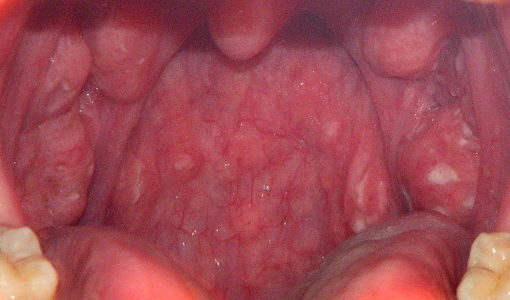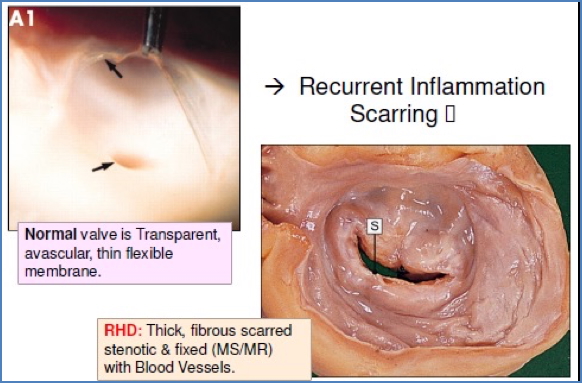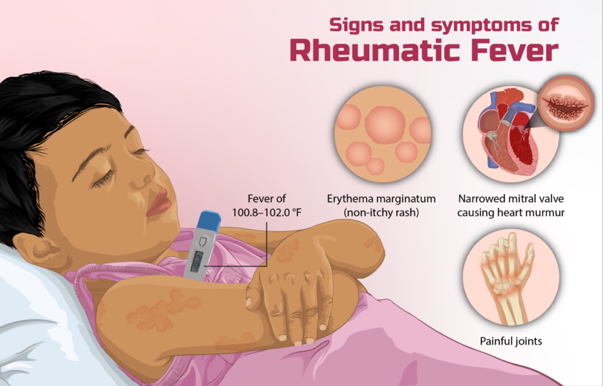Table of Contents
Overview – Rheumatic Heart Disease
Rheumatic heart disease is a chronic valvular condition caused by an autoimmune response to Group A β-haemolytic Streptococcus (GAS) pharyngitis. It develops after repeated or severe episodes of acute rheumatic fever, particularly in genetically susceptible individuals. Understanding this disease is essential for early diagnosis, effective treatment, and the prevention of irreversible cardiac damage in young populations worldwide.
Definition
- Rheumatic Fever (RF): A delayed autoimmune complication of GAS pharyngitis.
- Rheumatic Heart Disease (RHD): The chronic sequela of RF, typically manifesting as mitral stenosis due to cumulative valve damage.
- Distinction:
- RF = Acute, inflammatory, and potentially reversible.
- RHD = Chronic, fibrotic, and irreversible.
Aetiology
- Environmental Trigger: GAS (Streptococcus pyogenes) pharyngitis.
- Genetic Susceptibility: HLA-DR2 and HLA-DR3 positive individuals (≈3% of population).
- Autoimmune Reaction:
- Anti-M protein antibodies cross-react with cardiac connective tissue (molecular mimicry).
Pathophysiology
- GAS pharyngitis in a genetically susceptible host triggers an immune response.
- After ~2 weeks, immune cross-reactivity causes systemic inflammation → acute rheumatic fever.
- Repeated infections lead to stronger immune responses, resulting in progressive fibrosis of heart valves.
- Most commonly affects the mitral valve (→ mitral stenosis).


Clinical Features
Acute Rheumatic Fever
Diagnosed using the Modified Jones Criteria:
- Requires:
- Evidence of recent GAS infection, and
- Either 2 major OR 1 major + 2 minor criteria.
Evidence of Recent GAS Infection:
- ↑Anti-streptolysin-O (ASO) titre
- ↑Anti-DNase B antibodies
- Positive throat swab culture
Major Criteria:
- Joints – Migratory polyarthritis
- Carditis – Pericarditis, quiet heart sounds, tachycardia
- Nodules – Subcutaneous, painless
- Erythema marginatum – Non-pruritic, tinea-like rings
- Sydenham chorea – Involuntary movements
Minor Criteria:
- Fever
- Arthralgia
- Elevated ESR
- Prolonged PR interval

Chronic Rheumatic Heart Disease
- Valvular pathology (Left-sided most common):
- Mitral stenosis (± regurgitation)
- Aortic stenosis (± regurgitation)
- Mitral Stenosis Signs:
- “Mitral facies” – Malar rash over cheeks and nose
- Mid-diastolic murmur – Loudest at apex on expiration, radiating to axilla
- Pulmonary congestion, right heart failure
- Atrial fibrillation (due to left atrial stretch)
- ↑ Risk of infective endocarditis
Investigations
- ASO titres / Anti-DNase B
- ECG – PR prolongation, AF
- Echocardiography – Valve function, chamber sizes
- Throat culture (in acute phase)
Management
Primary Prevention
- Treat initial GAS pharyngitis:
- 10 days oral Penicillin-V (or Amoxicillin/Cephalexin)
Secondary Prevention
- Acute RF:
- Benzathine Penicillin G (IM, single dose)
- NSAIDs or Codeine for arthritis
- Carbamazepine or Valproate for chorea
- ACE inhibitors, β-blockers, diuretics for carditis or CCF
- Prevent Recurrence:
- Long-term antibiotic prophylaxis:
- 1st line: Monthly IM Benzathine Penicillin G
- 2nd line: BD oral Penicillin-V
- Penicillin allergy: BD oral Erythromycin
- Long-term antibiotic prophylaxis:
Tertiary Prevention
- Surgical valve replacement (typically mitral valve)
Complications
- Irreversible valvular heart disease
- Heart failure
- Atrial fibrillation
- Infective endocarditis
- Stroke (from embolic events in AF)
Differential Diagnosis
- Rheumatoid arthritis (RA)
- Persistent joint symptoms, mild myocarditis
- Infective endocarditis
- Viral myocarditis
- Congenital heart disease (for murmur differentiation)
Summary – Rheumatic Heart Disease
Rheumatic heart disease is a preventable, chronic cardiac complication resulting from recurrent or severe acute rheumatic fever, itself a delayed autoimmune response to Group A streptococcal pharyngitis. Early recognition and management—including antibiotic prophylaxis and valve monitoring—are crucial in preventing long-term sequelae such as mitral stenosis, atrial fibrillation, and heart failure. For broader context, see our Cardiovascular Overview page.